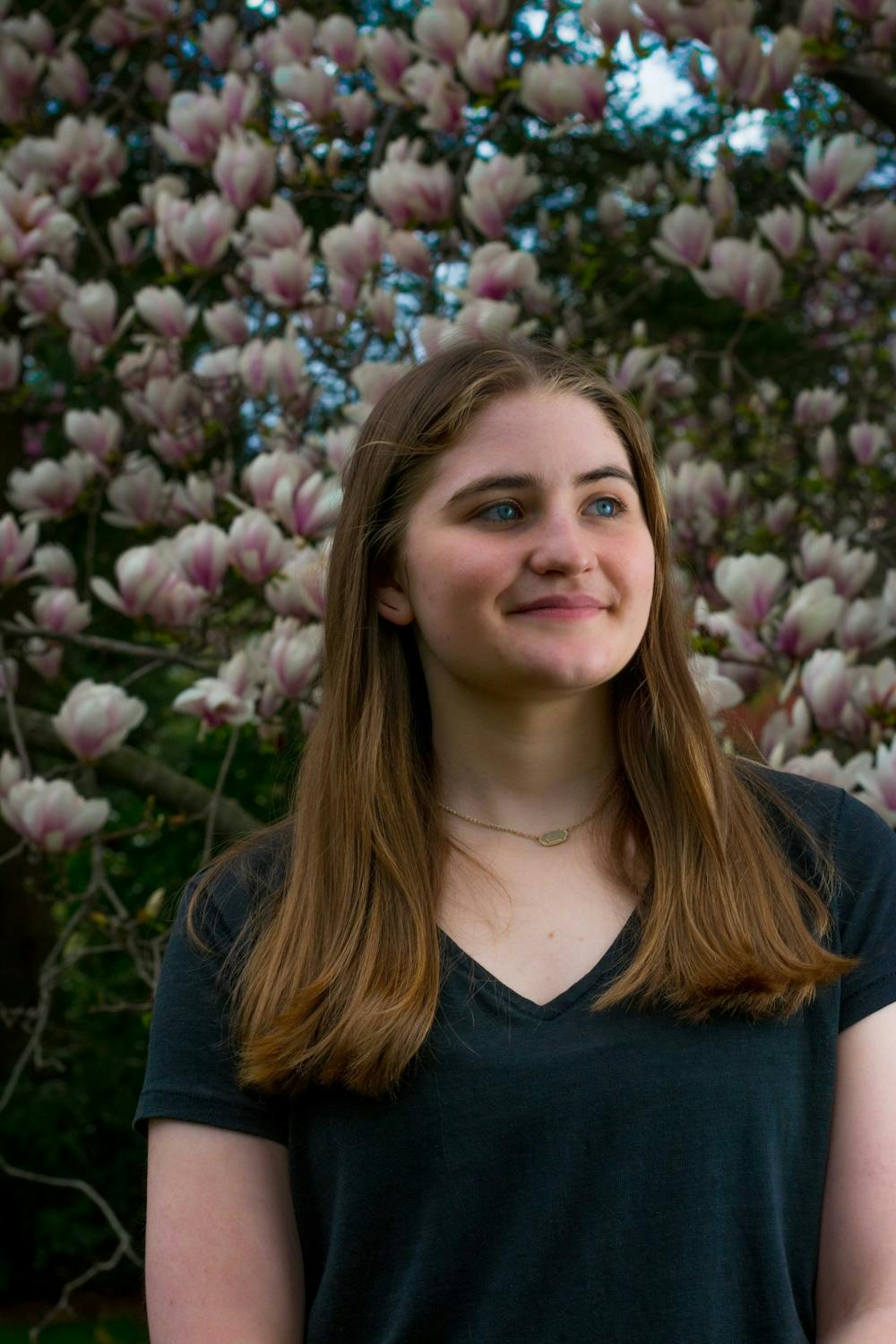For her senior thesis, Jessica Lambert ’22 decided to write about the land and people where her “heart really lies.”
As a citizen of the Choctaw Nation, Lambert wanted to write about environmental contamination on native lands. Without a clear path for pursuing this passion at the University, she sought out faculty members and mentors in Indigenous studies at Princeton particularly focusing on environmental justice. In the end, the anthropology major would go on to work with two advisors — one in her department and another in geosciences — and win the 2022 Center for Digital Humanities Senior Thesis Prize, using her humanities and science backgrounds to speak with residents and conduct environmental sampling on Choctaw reservation lands.
“It was this really cross-disciplinary project that at its core was looking at how Choctaw human and environmental health was being impacted by this pollution,” Lambert said in an interview with The Daily Princetonian. “I was figuring out how to integrate natural science and its quantitative data with social science and the qualitative understanding of what impact this facility was having on the environment.”
The town of McAlester, which Lambert focused on in her thesis, has been the site of a U.S. military facility where old bombs are detonated and decommissioned. As a result, harmful chemicals and pollutants are released into Choctaw air, water, and land — a key way in which settler colonialism and ongoing Native land theft continue to materially impact the community.
After graduation, Lambert interned at the White House Council on Environmental Quality, focusing on environmental justice in the Office of the Federal Chief Sustainability Officer. Currently, she is at The Wilderness Society doing Government Relations, where she works on protecting and providing access to public lands.
Lambert’s interest in Indigenous studies connects back to the beginning of her time as an anthropology concentrator, with her junior paper. Her paper focused on young Native women in anthropology, like herself, as well as early Indigenous anthropologists and the effects that American anthropology has had on Indigenous populations.
“I wrote about this to really ground myself and better understand what discipline I’m coming from,” she said.
Outside of the classroom, Lambert led advocacy for Native students at Princeton. In co-leading the Princeton Indigenous Advocacy Coalition, Lambert pushed for Indigenous studies to be expanded on campus, including through a partnership with the Native American Alumni Association that secured a $5 million grant for an endowed chair of Indigenous studies.

“We did a ton of advocacy related to the gaps that Princeton had in terms of Indigenous studies, in terms of institutional support for Native students, making sure that Princeton’s recruitment strategies for admission are efficiently and actively targeting Native students to make sure that Native students know that Princeton is a great place to come,” she said.
The Princeton Indigenous Advocacy Coalition was well received by the University administration, Lambert said.
She also helped develop the Native American and Indigenous studies Initiative at Princeton (NAISIP) webpage, which presents information about events, associated faculty, and courses connected to Indigenous studies for interested students. Associated staff of the program belong to a wide array of departments.
“I helped develop the Indigenous studies website,” Lambert said. “One of the really core things that I identified as a barrier to recognizing how much Indigenous sites infrastructure we already had going on at Princeton was just that it wasn’t in one place.”

During the beginning of her time at Princeton, Indigenous studies were an independent venture. “Back then you really had to seek out a professor who was doing it, and it was very much on your own,” she said.
While Indigenous studies is not currently a concentration or certificate at the University, Lambert said she hopes that it will become a formal program at the University in coming years and that the groundwork for that has been laid down during her time on campus.
A formalized program of study, in Lambert’s view, would encourage more students to explore Indigenous studies, even through exposure to one introductory course.
“I think that helps, not only people who come in wanting to do Indigenous studies, but having a program there makes it so much more visible for every student,” she said.
Specifically for Native students, the creation of a program involves “structures or supporting Native students who are doing Indigenous studies,” Lambert said.
Throughout her time at Princeton, she also focused on community building in student groups. When she started in 2018, Natives at Princeton, a student organization providing Native students with support and community, “didn’t have a lot of visibility and it was hard for people to find,” she said. When she was one of the co-presidents of Natives at Princeton, the group obtained an affinity space in Green Hall for students to meet, work, and talk with one another.
“Having a space where we can be ourselves has been just so life-changing in terms of how tight-knit and close the Native community is on campus,” Lambert said.
Looking toward the future, Lambert’s biggest hope is that the progress she helped spark will only lead to more advocacy and promises kept by the University.
“Hopefully, soon we will have a certificate or a concentration in Indigenous studies to help more formally solidify and grow all the progress that’s happened over the last few years,” she said. “I think there’s a lot more to come that I’m excited for.”
Isabel Yip is an Assistant News Editor who typically covers University Affairs and student life. She can be reached at isabelyip@princeton.edu or on Instagram at @isaayip.








